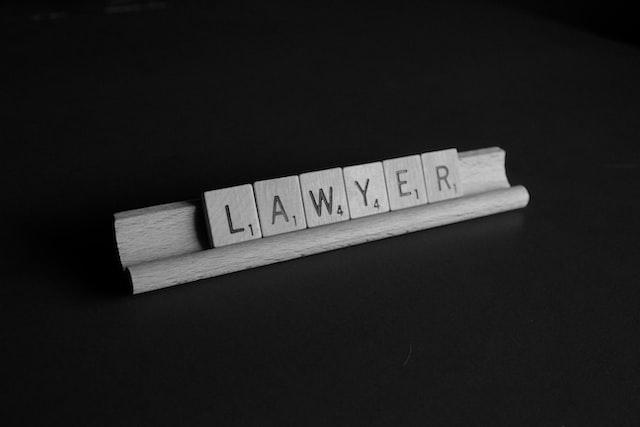What is the Role of a Defense Attorney?
Our product recommendations are made independently, but we may earn affiliate commissions if you use a link on this page.
The role of a defense attorney is essential in the criminal justice system. Defense attorneys are responsible for representing individuals who have been accused of crimes, protecting their rights, and advocating for their interests.
A good defense attorney can make a significant difference in the outcome of a criminal case, ensuring that the accused receives a fair trial and has the best possible defense against the charges.
In this article, we'll take a closer look at the role of a defense attorney, including the specific tasks they perform and the skills they need to be effective in their work.

What is the Role of a Defense Attorney?
Protecting the Rights of the Accused
One of the most important roles of a defense attorney is to protect the rights of the accused. This means ensuring that the defendant is treated fairly and has access to all of the rights guaranteed to them under the law.
These rights include the right to remain silent, the right to a fair and impartial trial, and the right to be presumed innocent until proven guilty beyond a reasonable doubt. Defense attorneys work to ensure that these rights are not violated by law enforcement, prosecutors, or the court system.
To protect their client's rights, defense attorneys often conduct their own investigations into the charges against their clients. They may review police reports, gather evidence, interview witnesses, and consult with experts in various fields to build a strong defense.
They may also challenge any evidence that was obtained illegally or in violation of their client's rights. By taking these steps, defense attorneys can help to ensure that their clients receive a fair trial and are not unjustly convicted.
Analyzing Evidence and Building a Defense Strategy
Another key role of a defense attorney is to analyze the evidence presented by the prosecution and build a strong defense strategy. Defense attorneys will carefully review all of the evidence in the case, including witness statements, police reports, and physical evidence, to identify any weaknesses in the prosecution's case. They will also consult with experts in various fields, such as forensics or psychology, to help them understand and challenge the evidence.
Once they have analyzed the evidence, defense attorneys will work to develop a defense strategy that is tailored to the specific circumstances of their client's case. This may involve challenging the credibility of witnesses, presenting an alternative explanation for the evidence, or arguing that the prosecution has not met its burden of proof.
Defense attorneys may also explore the possibility of plea bargains or other alternative resolutions to the case, depending on the circumstances.
Building a strong defense strategy is essential for the success of a criminal defense case. A good defense attorney will be able to identify the strengths and weaknesses of the prosecution's case and develop a strategy that minimizes the impact of the evidence against their client.
They will also be able to present a compelling argument in court and effectively cross-examine witnesses to challenge the prosecution's case. By building a strong defense strategy, defense attorneys can help to ensure that their clients receive a fair trial and are not unjustly convicted.

Negotiating Plea Deals with Prosecutors
One of the most common tasks for a defense attorney is negotiating plea deals with prosecutors. A plea deal is an agreement between the prosecution and the defense in which the defendant agrees to plead guilty in exchange for a reduced sentence or other concessions. Defense attorneys will often negotiate plea deals on behalf of their clients to avoid the risk of a more severe sentence if they are convicted at trial.
Negotiating a plea deal requires a deep understanding of the law and the potential consequences of different outcomes. Defense attorneys will carefully review the evidence in the case and consider the strengths and weaknesses of their client's position to determine whether a plea deal is in their best interest.
They will then negotiate with the prosecution to reach an agreement that is favorable to their client. While not all cases are suitable for plea deals, they can be an effective way to resolve a case quickly and avoid the uncertainty and expense of a trial.
Representing the Defendant in Court
As the representative of the defendant, a defense attorney plays a vital role in court proceedings. They will advocate on behalf of their client, present arguments to the judge and jury, and challenge the prosecution's case. Defense attorneys will also cross-examine witnesses and present evidence to support their client's defense.
To effectively represent their client in court, defense attorneys must be skilled at communication and persuasion. They must be able to present their client's case in a clear and compelling way, using both verbal and nonverbal cues to influence the judge and jury.
They must also be able to think quickly and respond to unexpected developments in the trial, such as objections from the prosecution or new evidence presented in court. By representing their clients effectively in court, defense attorneys can help to ensure that their clients receive a fair trial and that justice is served.

Cross-Examining Witnesses and Challenging Evidence
Cross-examining witnesses and challenging evidence is an essential part of a defense attorney's role. During cross-examination, defense attorneys will question witnesses who have testified against their client, looking for inconsistencies or weaknesses in their testimony. They may also challenge the admissibility of evidence presented by the prosecution, arguing that it was obtained illegally or is not relevant to the case.
To be effective at cross-examination and challenging evidence, defense attorneys must have a thorough understanding of the law and the rules of evidence. They must also be skilled at questioning witnesses, using a combination of open-ended and closed-ended questions to elicit useful information.
Additionally, defense attorneys must be able to anticipate objections from the prosecution and be prepared to respond to them effectively. By cross-examining witnesses and challenging evidence, defense attorneys can help to undermine the prosecution's case and cast doubt on their client's guilt.
They may be able to uncover inconsistencies or flaws in the evidence or show that it was obtained through illegal or unethical means. Through their efforts, defense attorneys can help to ensure that their clients receive a fair trial and are not unjustly convicted.
Advocating for Leniency in Sentencing
One of the final roles of a defense attorney is to advocate for leniency in sentencing if their client is found guilty or pleads guilty to a crime. Defense attorneys will often present mitigating factors that could reduce their client's sentence, such as their lack of prior criminal history, their remorse for their actions, or extenuating circumstances that contributed to the crime. They may also argue that a harsh sentence would be unfair or disproportionate given the circumstances of the case.
They must be able to articulate their client's position clearly and effectively, using evidence and legal precedent to support their case. Through their efforts to advocate for leniency in sentencing, defense attorneys can help to ensure that their clients are not unduly punished for their crimes.
They may be able to secure alternative sentences, such as probation or community service, or reduced prison time. By advocating for their clients in this way, defense attorneys can help to ensure that justice is served in a fair and appropriate manner.
Ensuring a Fair Trial
Above all else, the role of a defense attorney is to ensure that their client receives a fair trial. This means advocating for their client's rights, building a strong defense, and challenging any unfair or unethical practices that may occur during the trial. Defense attorneys will work tirelessly to ensure that their clients are treated fairly and that the trial proceeds in accordance with the law.
To ensure a fair trial, defense attorneys must be vigilant in monitoring the actions of the prosecution and the court. They must be prepared to object to any unfair practices, such as improper questioning of witnesses or attempts to introduce inadmissible evidence.
Additionally, defense attorneys may seek to have the case dismissed or the charges reduced if they believe that their client's rights have been violated. By ensuring a fair trial for their clients, defense attorneys can help to uphold the principles of justice and protect the rights of all individuals accused of crimes.
The role of a defense attorney is multifaceted and essential in the criminal justice system. Defense attorneys work tirelessly to protect the rights of the accused, analyze evidence, build a strong defense, negotiate plea deals, represent their clients in court, challenge evidence, advocate for leniency in sentencing, and ensure a fair trial.
By performing these tasks, defense attorneys help to ensure that justice is served and that the rights of all individuals are protected. Whether they are defending a high-profile case or representing an individual accused of a minor offense, defense attorneys play a vital role in upholding the principles of justice and fairness in our society.
Reference Legal Explanations
If you use any of the definitions, information, or data presented on Legal Explanations, please copy the link or reference below to properly credit us as the reference source. Thank you!
-
<a href="https://legal-explanations.com/blog/what-is-the-role-of-a-defense-attorney/">What is the Role of a Defense Attorney?</a>
-
"What is the Role of a Defense Attorney?". Legal Explanations. Accessed on December 15, 2024. https://legal-explanations.com/blog/what-is-the-role-of-a-defense-attorney/.
-
"What is the Role of a Defense Attorney?". Legal Explanations, https://legal-explanations.com/blog/what-is-the-role-of-a-defense-attorney/. Accessed 15 December, 2024
-
What is the Role of a Defense Attorney?. Legal Explanations. Retrieved from https://legal-explanations.com/blog/what-is-the-role-of-a-defense-attorney/.